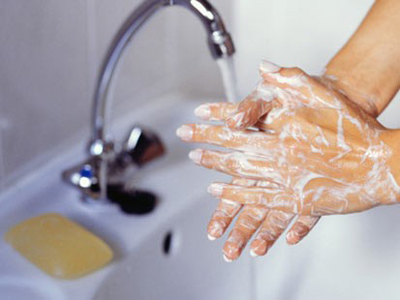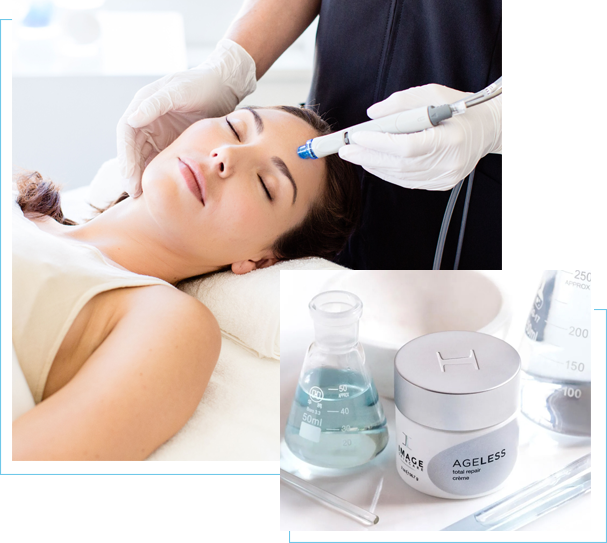
Hand Sanitizer or Soap
Hand Sanitizer or Soap? Which is better?
Do they work the same? Is there one that is better? Sounds like a simple question, but its not that simple To give you an idea of how important a question it is and how much there is to think about, pretty much everything there is to know right now about hand washing can be found in a 200 page document on hand washing by the World Health Organization. Its not light reading. Here are the high points and some of the things I found interesting:
- If your hands are visibly contaminated (dirty), then soap and water is superior
- Antibacterial soap doesn’t make your hands cleaner than regular soap
- Bars of soap, like the one laying around in your bathroom can and do become contaminated with bacteria, but studies have found that you can still wash with these bars of soap and not pick up bugs.
- Hand sanitizer with 70% alcohol kills a lot more bugs than soap (unless your hands are visibly soiled).
So let’s look at these findings a little more:
1: If your hands are visibly contaminated (dirty), then soap and water is superior
Washing with soap and water excels at removing debris from your hands. This debris can harbor bacteria and can aid in the transmission of disease. Washing your hands with soap and water primarily removes bacteria through the mechanical process of rubbing to dislodge this material, soap to emulsify and lift debris, and running water to rinse it away. Practically speaking this means that traditional handwashing is ideal when there is visible material on your hands to remove. This includes:
- After sneezing, coughing into your hands or blowing your nose
- After using the bathroom
- After handling raw meat
- After taking out the trash
- After touching animals
- After contact with body fluids, such as after changing a diaper
- When hands are visibly soiled
2. Antibacterial soap doesn’t make your hands cleaner than regular soap
Antibacterial soap sounds awesome. Who wants bacteria? Anything that kills them must be better, right? This sounds completely obvious, it must be true. Soap manufacturers certainly think so because its genuinely hard sometimes to find hand soap that ISN’T antibacterial.
The fact is most antibacterial soap is evil. Maybe that’s a little strong, so I’ll put it another way. Antibacterial soap is a marketing scam that takes advantage of consumer’s desire to be healthy, but actually is harmful to your health. In other words, it’s EVIL.
Numerous studies have found that except in a few special circumstances the use of an antibacterial soap does not lead to any improvement whatsoever over the use of any other soap. The fact of the matter is that when it comes to hand washing, its the mechanical act of rubbing your hands together under running water that makes the difference. Adding an agent to soap that kills bacteria doesn’t actually anything. In all likelihood that antibacterial agents aren’t in contact with your skin long enough to be effective since they are quickly rinsed away.
But that’s not enough to make them evil. The main reason they are evil is because this summer it was shown that triclosan, one of the most common antibacterial agents around, is harmful to muscle cells. In this study, ingestion of triclosan weakened the hearts of mice as well as the rest of their muscles. Not planning on eating triclosan? Well, the bad news is that because 1 million pounds of this garbage is made each year in the United States and put into soap that goes down the sink, its in our drinking water. You’re already eating it, just in such small amounts that you don’t notice.
The other reason I think they are evil is because they are all irritating to skin. A lot of my patients with eczema get flareups because of antibacterial soap.
The bottom line is that I never buy antibacterial soap. It doesn’t work better than regular soap, there is legitimate concern that it might be toxic, and since everyone in my house has mild eczema its too harsh on our skin.
3. Bars of soap laying around are ok.
This one surprised me. And bars of soap lying around in public restrooms make me want to gag just a little, but studies have found that they are actually ok. Even if they are contaminated with bacteria, those bacteria aren’t easily transmitted by washing with the soap. Users were still found to have fewer bugs on their skin after washing with dirty soap than before. So, while its not ideal, if you’re only option is a dirty bar of soap or just plain water, the smart answer is to use the soap. I’ll probably rinse a whole lot longer though.
4. Hand sanitizer with 70% alcohol kills the most bugs.
Alcohol‐based hand sanitizers with at least 70% alcohol kill 99.9% of the bacteria on hands 30 seconds after application and 99.99% to 99.999% after 1 minute. They are also incredibly effective against viruses as well, including flu virus, viruses that cause the common cold, and HIV. For these viruses, alcohol based sanitizers are actually MUCH better than hand washing- about 100 times better. Overall, in sheer bug killing power, alcohol based sanitizers blow hand washing away.
There are only a few things that alcohol based sanitizers don’t kill
- Clostridium dificile. A spore forming bacteria that is usually acquired in hospitals (not clinics, just hospitals)
- Rabies virus.
However, there are some key points to the proper use of alcohol based sanitizers
- Concentration matters. 60% is probably ok, but 70% is ideal. There are products for sale that are only 30-40%. They probably don’t work.
- Ethanol or Isopropanol are both fine. Isopropanol is probably more common because companies don’t worry about people drinking it.
- Time matters. The alcohol needs 30 seconds minimum to work. A minute is better. This means you DON’T want to rub until your hands dry. You want your hands to remain wet with the alcohol for at least 30 seconds and rubbing too much just makes it evaporate.
- You have to apply it thoroughly. You must use a good bit of it and spread it thoroughly. Remember, you don’t want to rub until your hands are dry, instead what you really want to do is SPREAD it evenly and make sure that EVERY little bit of skin is covered.
- If your hands are dirty, you shouldn’t bother with alcohol based sanitizer and should wash your hands instead.
What this means in my house?
1. I don’t have any antibacterial soap at home or in the clinic because they don’t work, hurt my skin, and harm the environment.
What does this mean in my clinic?
1. I don’t buy antibacterial soap for the restrooms. Its just regular soap.
2. In the clinic space that I’m building there will not be sinks in the exam rooms because they aren’t necessary. This seems strange. And I remember in my second year of medical school at Harvard they told us that we should always wash our hands in front of the patient so that they know that we did it. However, hand sanitizer works better than hand washing, so a sink in the exam room would only provide an illusion of cleanliness. During a routine day, the best practice for my patients is for me to wash my hands in the morning to remove any visible contamination and then for the rest of the day the key is to use hand sanitizer before and after every patient.
3. Surgery Rooms. These rooms will have sinks. However, the best scrub here is still a waterless scrub with an alcohol based sanitizer. However, after surgery OSHA requires a soap and water hand wash, so I will install sinks.


